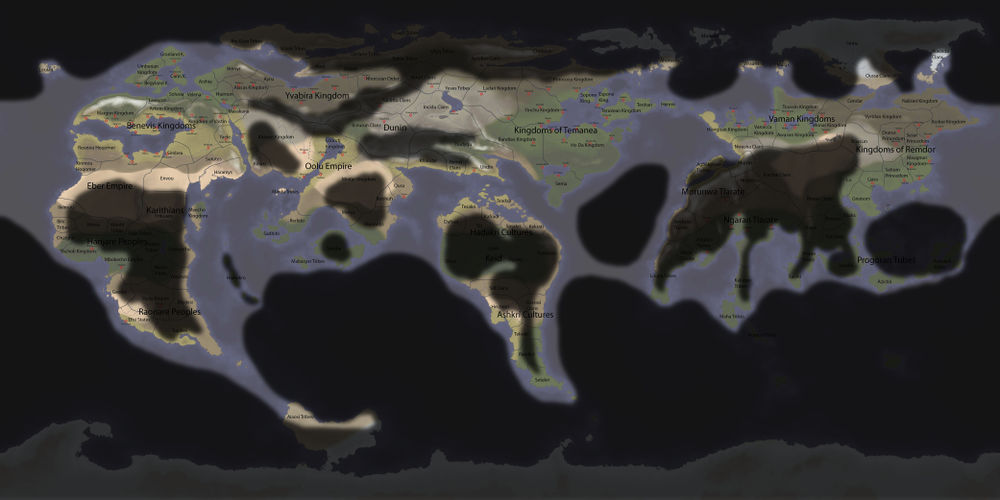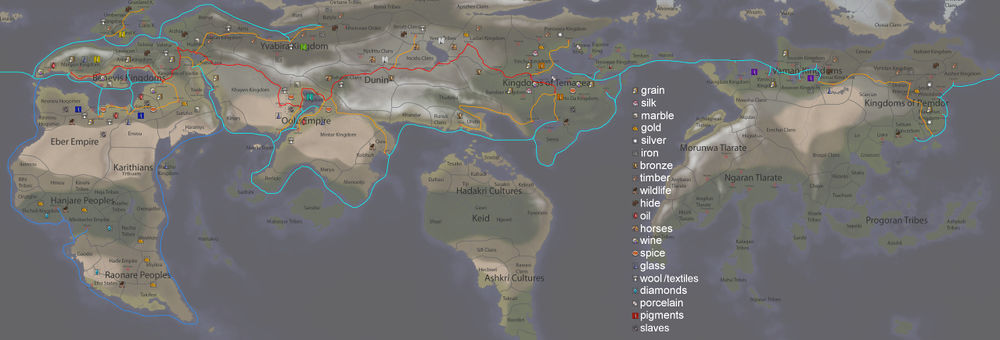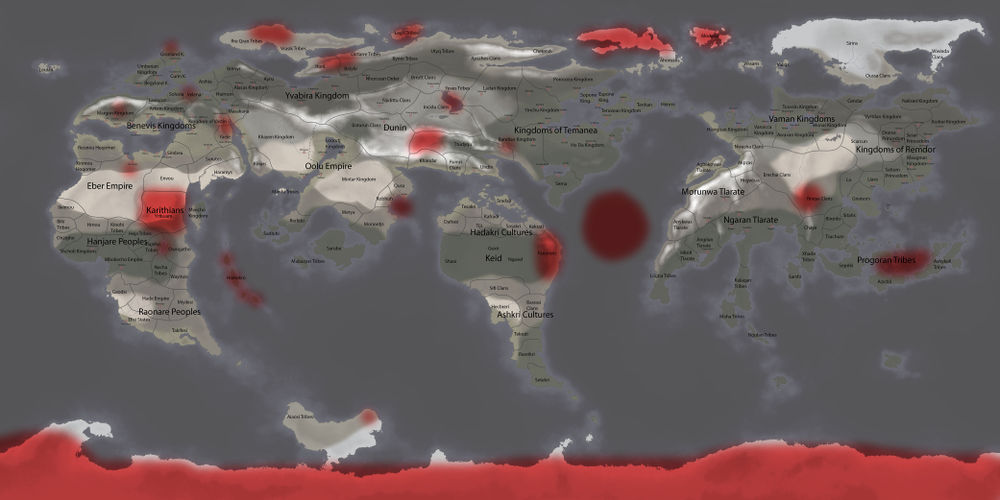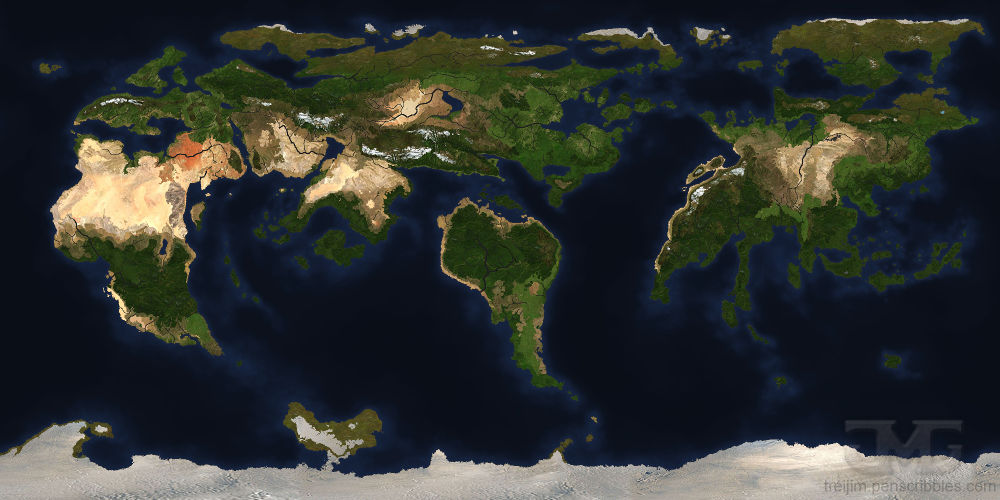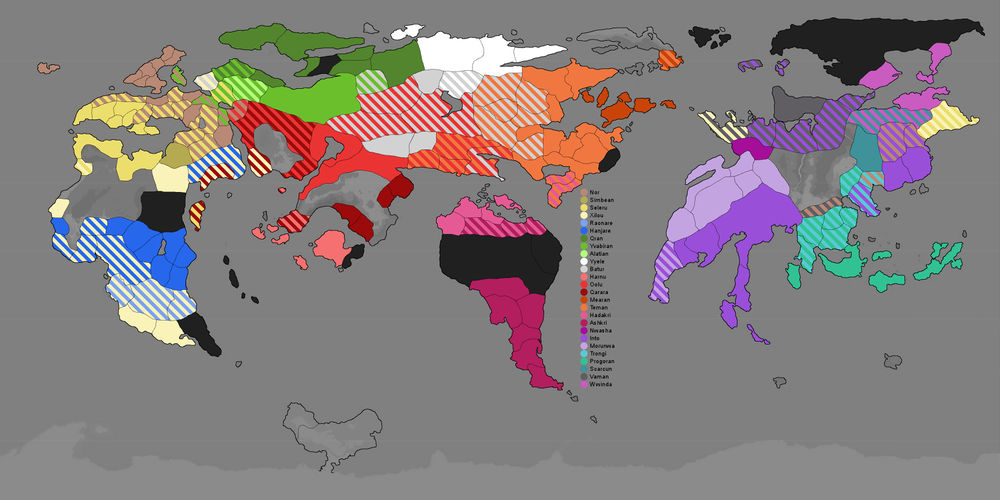World Maps: Difference between revisions
From Riiga
Jump to navigationJump to search
No edit summary |
No edit summary |
||
| Line 2: | Line 2: | ||
An article by Virgil on [[Benevis Mapping]]. | An article by Virgil on [[Benevis Mapping]]. | ||
The official [[https://bheiskell.github.io/riiga-timeline-map/|historical slideshow map]] of Riiga. | |||
==Realistic Biomes== | ==Realistic Biomes== | ||
Revision as of 12:40, 7 June 2021

An article by Virgil on Benevis Mapping.
The official [slideshow map] of Riiga.
Realistic Biomes
- Polar/Ice - Freezing cold land covered primarily in packed ice which sees little sunlight.
- Tundra - A cold, barren land with frozen soil, almost no trees, and short growing seasons allowing only grasses, shrubs, and mosses.
- Taiga - Cold forests mostly containing evergreen conifers, with very short summers and cold, snowy winters.
- Alpine Tundra - A high-altitude, treeless, freezing area with thin air which may be covered in snow throughout the whole year.
- Montane Forest - High-elevation deciduous forest lands that may be cool or warm depending on their place in the world.
- Temperate Forest - Forests mostly made of deciduous trees that see distinct warm summers and cool winters.
- Temperate Grassland - Grassland which sees freezing winters and hot summers, tough grasses, and low rainfall.
- Savanna - Grassland which experiences heavy rainfall in one season, but is otherwise quite dry and warm.
- Wooded Savanna - Savanna filled with low-density trees that do not create a canopy.
- Subtropical Forest - Forest that sees high precipitation, warm weather, and humidity, with a distinct canopy.
- Subtropical Rainforest - Tall forests that see regular rainfall but experience a short dry season, with a multi-layered canopy and rich soils.
- Monsoonal Forest - Deciduous forest that experiences a long dry season followed by a season of extreme rainfall.
- Tropical Rainforest - Tall, lush rainforests that see heavy continuous rainfal and no dry season, with several distinct canopies and poor soil quality.
- Mediterranean - Land with cool and wet winters and dry summers, with most rainfall falling during winter and a lot of sunlight.
- Dry Grassland - Cool grassy lands with low-growing vegetation and patchy coverage, perfect for grazing animals.
- Semiarid Desert - A desert with less sand dunes and more barren rocky ground that sees a wide range of temperatures.
- Arid Shrubland - Land with very little rainfall covered mostly in sparse shrubs and stones rather than sand dunes.
- Arid Desert - A very cold or very hot barren, dusty land with almost no precipitation, hostile toward most flora and fauna.
Riigan Biomes
- Glass Mountains - Due to mountains made of shimmering stone, glass mountain regions suffer from no vegetation whatsoever thanks to the storms of glass grains.
- Hills of Burden - A region in the Pearl Mountains which are really difficult to climb, causing them to be mostly void of trees and wildlife.
- Blightlands - Tropical forested land filled with poisonous plants and animals due to the natural toxic blight bursts that occur there.
- Burning Rainlands - A barren, toxic region that experiences rain that slowly dissolves organic material.
- Blue Forest/Night - A temperate, humid region which sees heavy blue-tinted seasonal fog, shrouding the land in darkness.
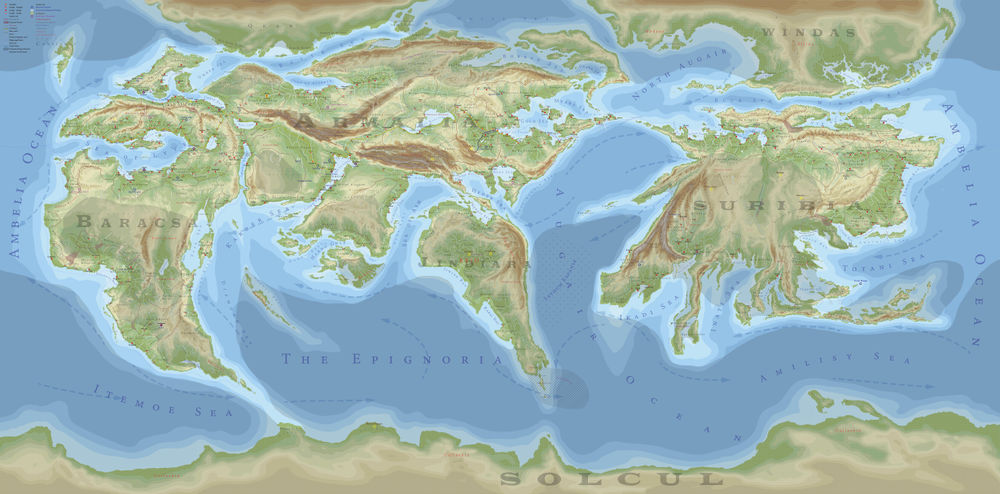
Each city marked represents a population of 10,000,000 both within it and in the surrounding area.
It also shows known Archaios locations, and man-made Wonders of certain (blue) or uncertain (white) locations.]]
